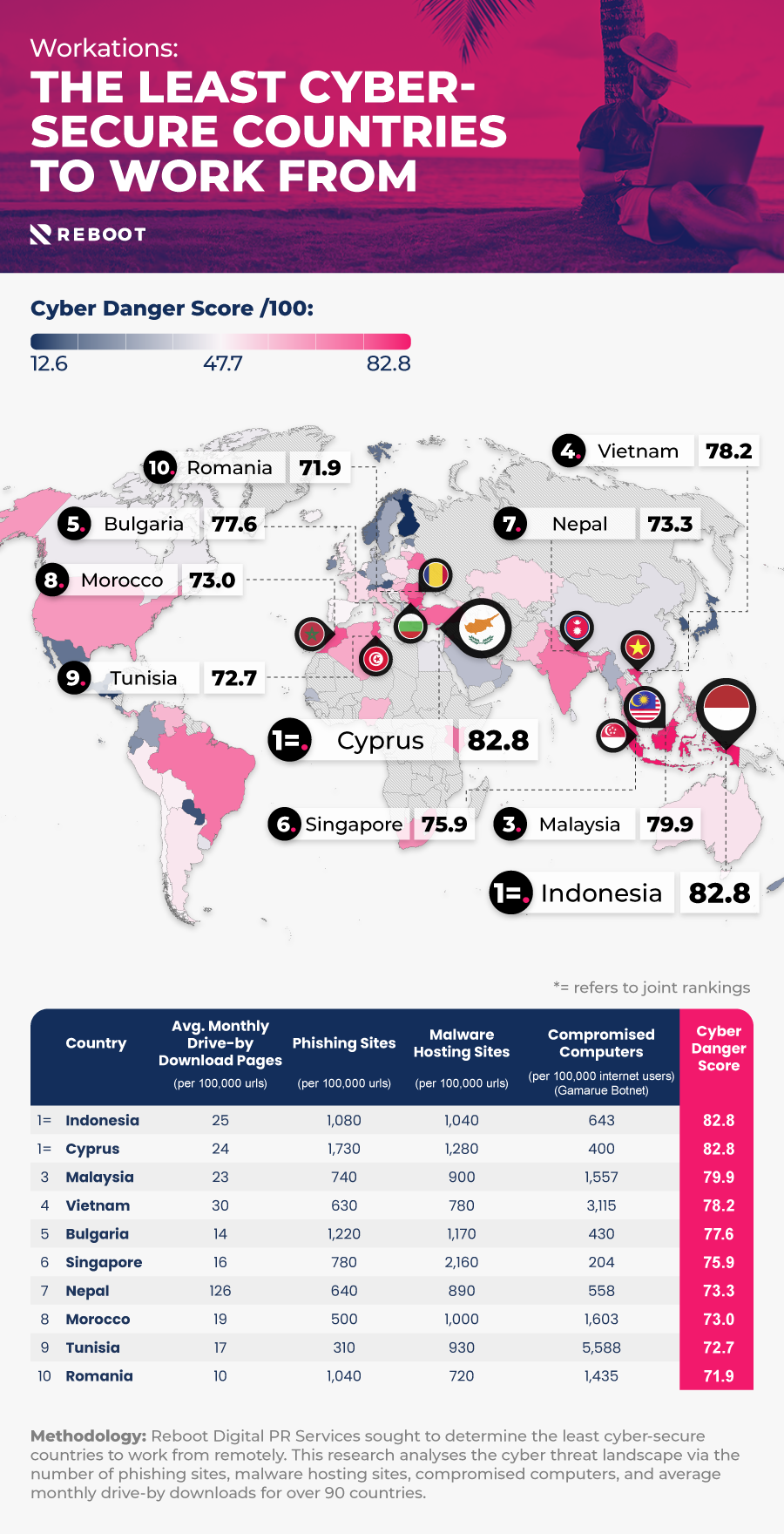
(Source – Shutterstock)
Which country is the least secure for a remote work holiday?
While remote working is still an option for some organizations globally, more companies are beginning to cut down on this work option and instead are requiring their employees to either work full time back in the office or a hybrid environment.
Despite technology enabling remote work to be a seamless experience, there are still concerns about the security of remote workers. In fact, statistics have shown that cybercriminals are now targeting remote workers more, especially since most of them are using their own devices on unsecured networks.
Even with companies like Spotify recently announcing that their employees can work anywhere they want in the world, the reality is, that they should be concerned about where exactly their employees are working from.
According to a study by Reboot Digital PR Services, Southeast Asia, which is a haven for tourists, is also one of the least-secured regions to work remotely. The study analyzed cybersecurity statistics, including drive-by downloads, phishing sites, malware-hosting sites, and compromised computers in order to create a cyber danger index score.

(source – Reboot Digital PR Services)
The score stated that Indonesia is the least secured place to work remotely in the world. With a cyber danger score of 82.8 out of 100, Indonesia tops the rankings in Asia and globally. Surprisingly, Indonesia has already established itself as a favorite hotspot for remote workers, enticing travelers with its thriving capital of Jakarta, and popular tourist destinations in Bali.
Cyprus, tied with Indonesia, also hosts over 3,000 phishing and malware sites combined, and have only recently started to welcome remote workers to their shores. In fact, seven of the top 10 countries with the least secure networks are in Asia
Malaysia came in third place with over 1,557 compromised computers and 900 malware-hosting sites which aid its overall cyber danger score of 79.9/100. Meanwhile, the Philippines (62.7) and Thailand (61.8) place ninth and tenth respectively presenting a cyber danger score of over 60 out of 100. South Asian country, Nepal, in sixth (73.3) has the highest drive-by downloads average of all countries analyzed, at 126 every month.
But it is not all doom and gloom. There are still countries that are becoming havens for remote working that’s to their improved cybersecurity. South Korea is currently the most cyber-secure location in Asia and also the fifth most secure location in the world with a danger score of just 19.8 out of 100 followed by Japan (21.8) and ranked 7th globally.
Globally, the most secured country for remote work is Finland with a cyber danger score of 12.6 out of 100.
With remote working and hybrid working seemingly the new normal for work, employers need to ensure their employees are working from secure locations and also use devices that have been installed with adequate cybersecurity protection. Remote and hybrid workers also need to ensure they are aware of their network connections when working remotely.
Cybercriminals are also getting smarter in picking their targets. Social engineering attacks for example are expected to increase, especially with remote workers using company devices for personal use as well.
For organizations at the end of the day, if they want to continue to allow their employees to work remotely, they should be sure to have their employees work from locations that would not compromise their cybersecurity.
READ MORE
- Safer Automation: How Sophic and Firmus Succeeded in Malaysia with MDEC’s Support
- Privilege granted, not gained: Intelligent authorization for enhanced infrastructure productivity
- Low-Code produces the Proof-of-Possibilities
- New Wearables Enable Staff to Work Faster and Safer
- Experts weigh in on Oracle’s departure from adland


